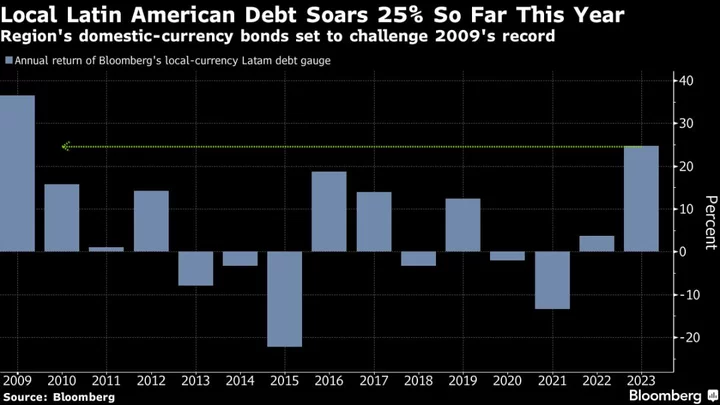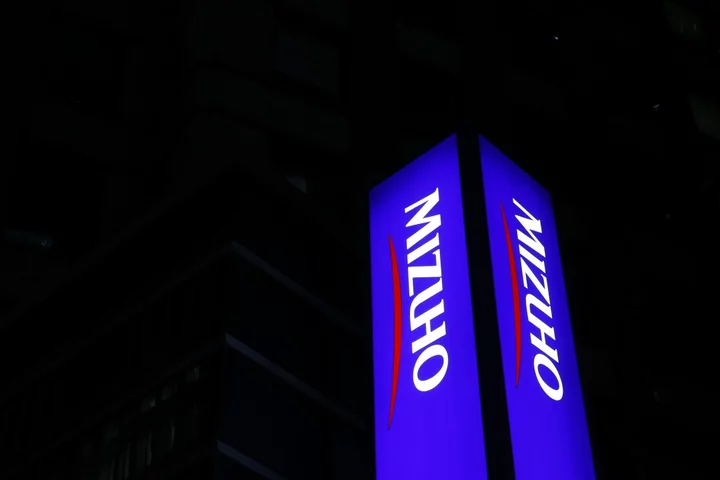The founder of Chile’s surging right-wing party bashed President Gabriel Boric’s plan for government control of lithium production, saying it would set the country back in competing for investment.
Jose Antonio Kast, who lost to Boric in the 2021 presidential election and aims to run again in 2025, said state-owned companies don’t have the expertise to extract lithium and ensure that Chileans get the maximum value for their natural resources. “If we delay, the most likely scenario is that Argentina, Bolivia and Australia are the biggest lithium producers,” he said.
“We’re going to lose an important position and show up late to submit this product that is part of our national wealth for trade,” he said in an interview at the headquarters of the Americas Society/Council of the Americas in New York.
Kast resurfaced as a major force in Chilean politics last month as his party secured the most votes in elections for a council charged with drafting a new constitution. The rise in support for his Partido Republicano compounded the challenges for Boric’s leftist administration, which swept into power with promises for reforms of the pension system and greater protection for indigenous rights but has been stymied by a divided legislature.
Read more: Why Chile’s Draft Constitution Has Come Under Attack
In April, Boric announced a new national lithium strategy that put the state in a central role to develop the industry, as demand from producers of electric vehicle batteries soars. The government plans to submit a bill to Congress later this year to create a national lithium company that would own a stake in all new projects and at least 51% of all operations in areas deemed strategic. In the meantime, it has assigned state copper producer Codelco the task of negotiating new contracts with Soc. Quimica & Minera de Chile SA, or SQM, and Albemarle Corp., to give the state majority stakes of their current projects.
“We don’t believe in the entrepreneurial state,” Kast said. “We do recognize the added value that Codelco has given to Chile, and we have always stated that, but we would not create a national lithium company, or a national company for wind energy or green hydrogen, because the state has to fulfill other roles first.”
Boric has said that the government will respect existing contracts with SQM and Albemarle to extract lithium from the Atacama salt flats. SQM’s contract expires in 2030 and Albemarle’s in 2043. SQM’s shares have dropped since Boric’s announcement, though some analysts have suggested the new public-private participation model could be reversed by the next administration.
Boric’s administration has said the strategy will attract more investors. The government is in talks with more than 40 interested companies from more than a dozen countries, Claudia Sanhueza, deputy trade minister, said last month.
Read more: Chile Sees Lithium Plan Expanding Trade Ties, Foreign Investment
While Kast opposes Boric’s plan, he said it wouldn’t be necessary to change the constitution to preserve private investment. “The current constitution does establish that natural resources are for all Chileans, but that they can be granted through a legal and qualified process to concessionaires,” he said. “That is something that we believe has permitted Chile’s mining industrial development.”
Kast, 57, said he hopes to be Republicano’s presidential candidate in 2025, but that the decision will play out in the coming months through local elections and political developments. Polling firm Criteria said this month that Kast led the list of preferred presidential candidates for the 2025 election, with 21% of respondents mentioning his name. Boric is barred from running for reelection.
“Yes, I have a real chance of being a candidate,” in part because of name recognition, he said. “But in politics, two years indeed is a long time.”
--With assistance from Carolina Gonzalez and Matthew Malinowski.









